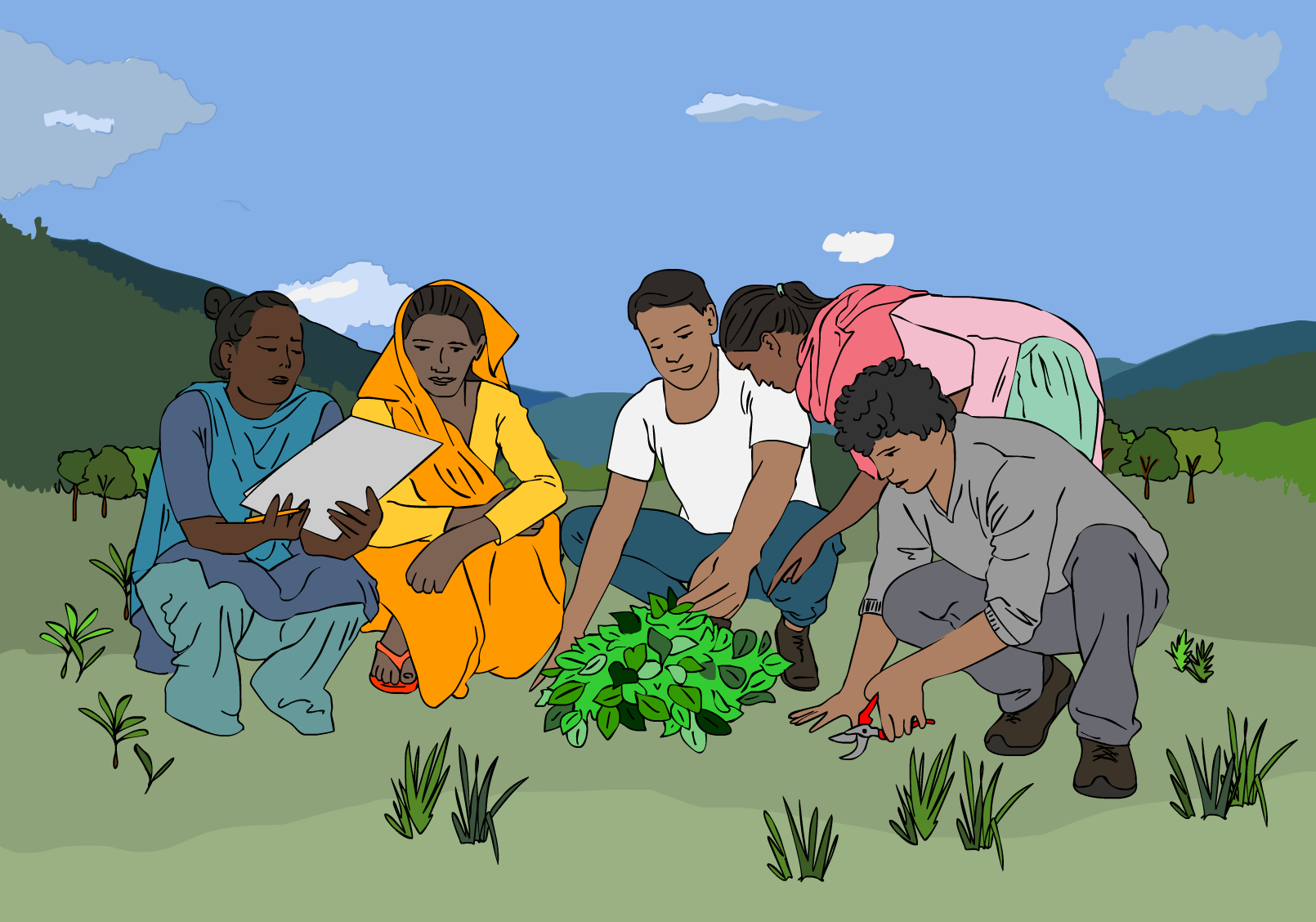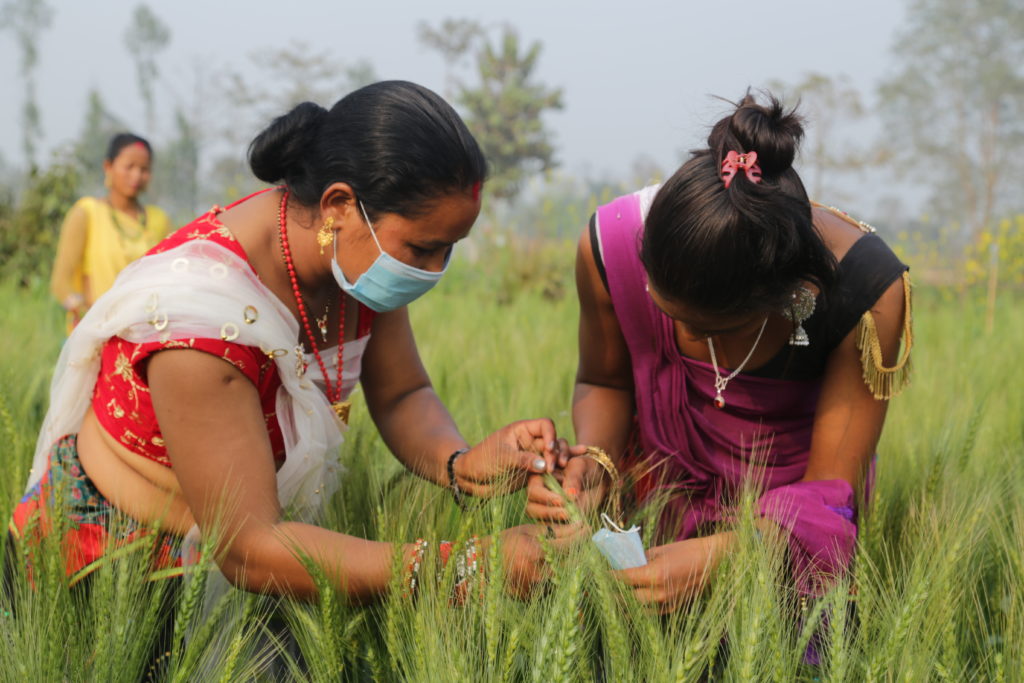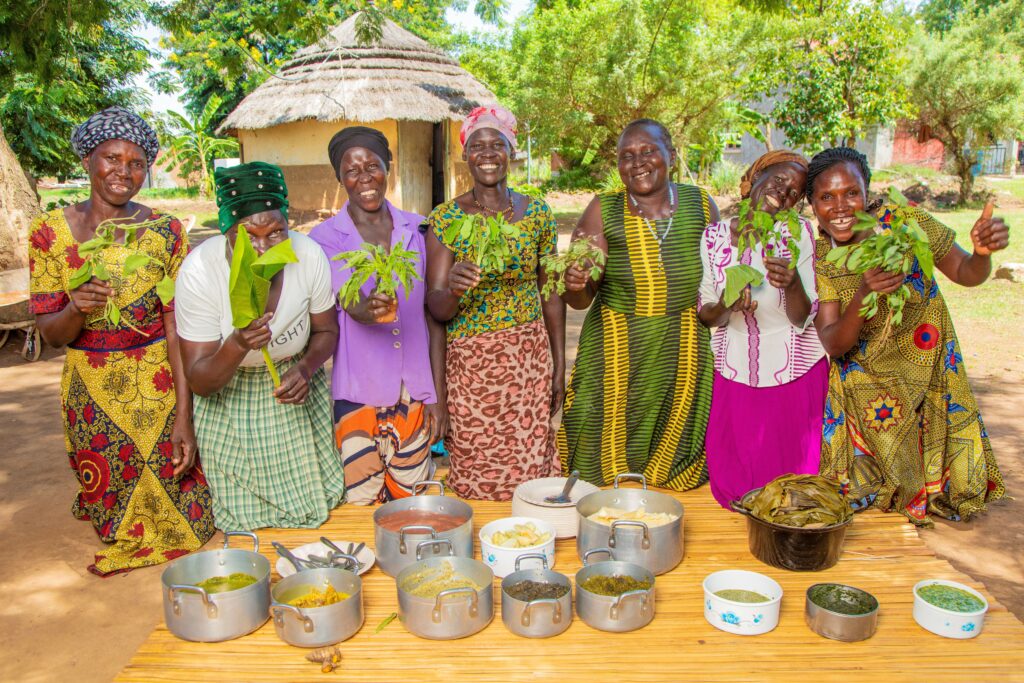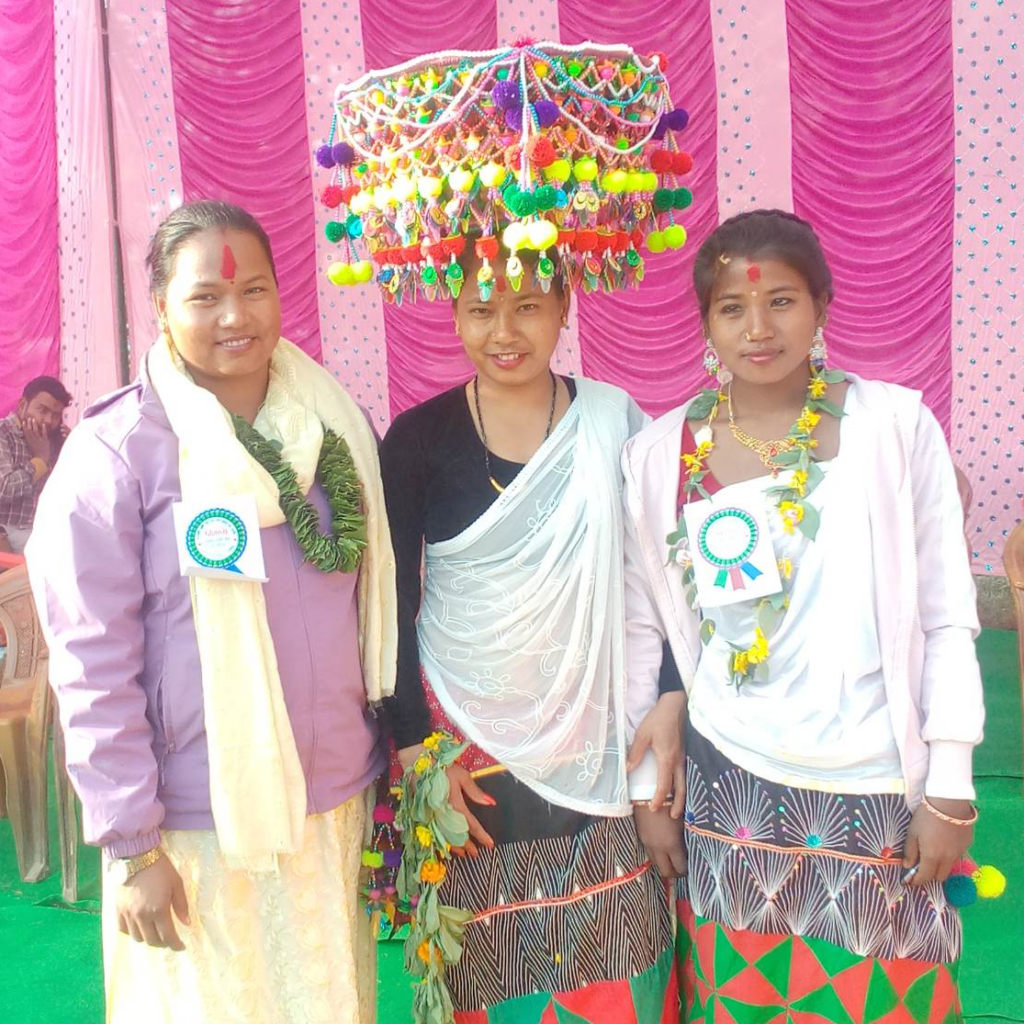On 20th and 21st of September 2022, Oxfam Novib and partners will host two side events during this year’s meeting of the FAO International Treaty on Plant Genetic Resources for Food and Agriculture in New Delhi, India. Community Technology and Development Trust Zambia (CTDT) and LI=BIRD from Nepal will represent the Sowing Diversity = Harvesting Security (SD=HS) program of Oxfam Novib, leading discussions on the path to a more inclusive seed system. Their main message is that farmers must be in the driving seat, their role as manager of the world’s biodiversity must be formally acknowledged in policies at all levels.
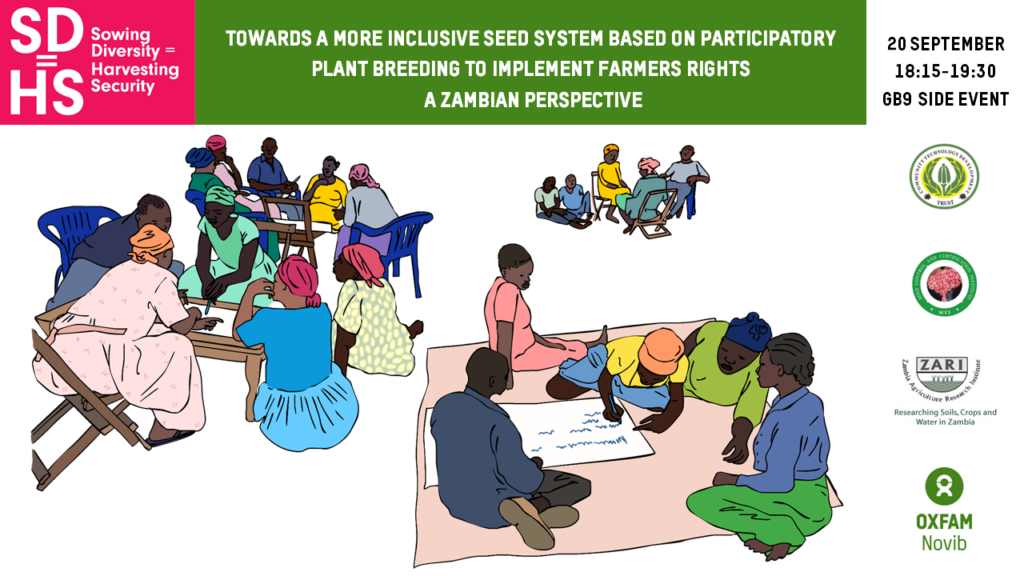
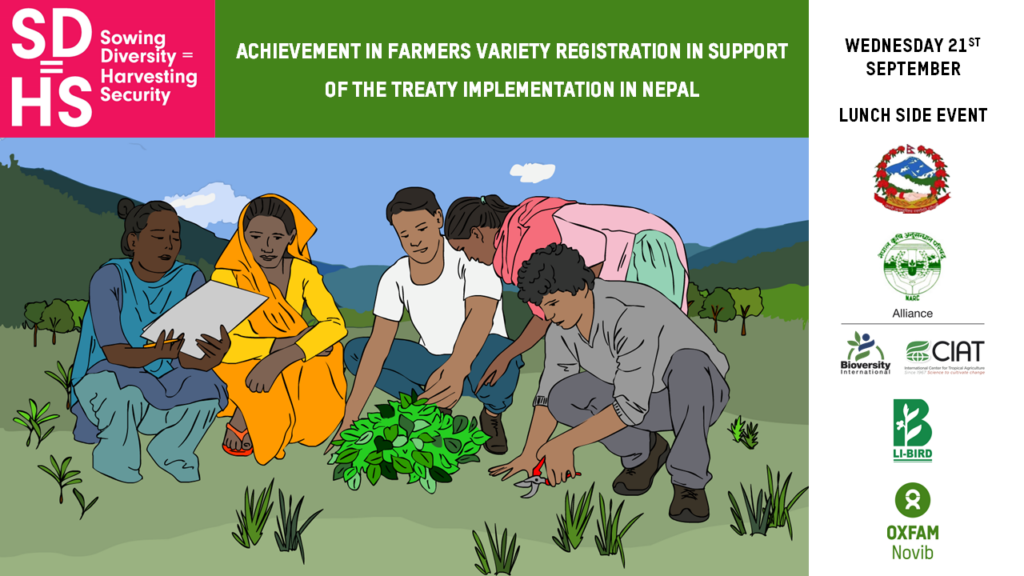
The SD=HS delegation consists of farmers, farmer association representatives, NGO practitioners, agricultural researchers, genebank breeders and ministry of agriculture delegates from both Zambia and Nepal. Their different perspectives are needed to reach an inclusive seed system, where farmers take their central role in the processes of breeding, seed production and marketing, policy decision making, and demanding the right to sell and register their seeds. The Alliance of Bioversity International and CIAT will co-host the side event with the SD=HS team from Nepal on September 21st.
Sowing Diversity = Harvesting Security is a program of Oxfam Novib that empowers smallholder farmers to access, develop and use plant genetic resources to improve their food and nutrition security under conditions of climate change. We work in collaboration with eight Oxfam offices and local partners in Nepal, Laos, China, Zambia, Zimbabwe, Uganda, Peru and Guatemala. More information on each side event.
The International Treaty on Plant Genetic Resources for Food and Agriculture aims at the conservation and sustainable use of all plant genetic resources for food and agriculture and the fair and equitable sharing of their benefits. It is the first legally-binding international instrument to formally acknowledge the enormous contribution of indigenous people and smallholder farmers as traditional custodians of the world’s food crops, and it calls on nations to protect and promote their rights to save and use the seeds they have taken care of for millennia. More information here.
Sida: Through the SD=HS program, the Swedish International Development Cooperation Agency (Sida) contributes to the implementation of the Funding Strategy of the Treaty, an effort to mobilize financial resources through various channels for implementation of the Treaty. The experiences from Zambia and Nepal showcase how funders, such as Sida, contribute to the implementation of the Treaty and therefore to food security worldwide. More information here.

